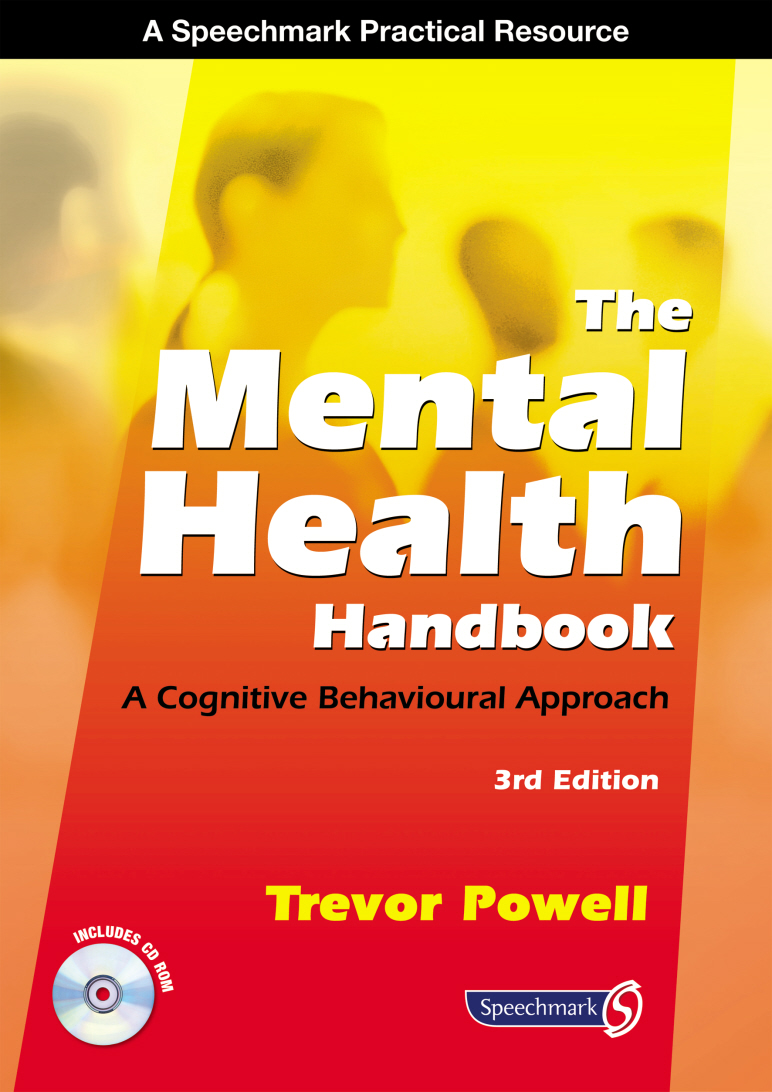 by Trevor Powell, MA (Hons), Msc. AFBPs, Clinical Psychologist
by Trevor Powell, MA (Hons), Msc. AFBPs, Clinical Psychologist
Professionals from all disciplines will welcome this abundance of material designed to play an important part in therapeutic intervention.
Full Description:
Trevor Powell's enduringly successful Mental Health Handbook has now been republished with many additions to the previous editions.
Now updated, the third edition incorporates the latest developments in Cognitive Behavioural Therapy and includes new pages, as well as expanded sections on Psychosis and OCD.
The handouts are designed to be photocopied or printed from the FREE CD Rom and handed to clients to supplement treatment programmes. Now with more than 200 photocopiable sheets including graded practice sheets, checklists, behavioural symptoms questionnaires, rating scales, home assignments, analysis sheets, goal plans and self-monitoring exercises.Includes handouts on a huge range of mental health issues, grouped under the headings of: Managing Anxiety, Assertiveness Training, Managing Depression, Managing Stress, Changing Habits & Behaviour, Coping with Psychosis, Bipolar Disorder and Dementia. This revised edition contains extended sections on Obsessional Compulsive Disorder and Managing Psychosis, and new sections on Mindfulness, Resilience, Forgiveness, Responsibility, Behavioural Experiments, Guilt, Distress Tolerance and Bipolar Disorder.
Contents:-
Managing Anxiety;
- Assertiveness Training;
- Managing Depression;
- Managing Stress;
- Changing Habits & Behaviour;
- Coping with Psychosis, Bipolar Disorder and Dementia.
Reviews:
'Never has so much relevant and useful material been gathered together in one handbook before.'
Therapy Weekly
Pages: 216; 9 X 11 1/2;spiral bound
Sample Activity
Breaking a HabitDisorders of habit can range from nail biting and spasms to eating disorders, problems with alcohol, drug misuse, smoking and gambling. The one thing they all have in common is that they are learned behaviours with short-term rewards and long-term costs. As they are learned, they can be unlearned. The most important step towards breaking a habit is deciding that you want to change. Motivation to change goes through a cycle of different stages. The stages of this cycle consist of: thinking about changing, making a decision to change, acting on that decision, maintaining that action, then either relapsing, or exiting from the cycle and breaking the habit. The second step is to carry out an accurate assessment of the problem by the process of self-monitoring. When does it happen? How? What are the antecedents? What are the consequences? What thoughts and emotions are associated with the habit? This self-assessment can lead to greater understanding, greater control, and a baseline measure of frequency and severity. You can work out an intervention plan based on information from the self-monitoring assessment. It might consist of: - Altering antecedents or what occurs before the habit.
Assessment often shows that the habit is related to a particular situation or emotional state, for example hours of boredom, feeling anxious, or being in a particular situation.- Altering consequences.
At the moment your habit is being maintained by certain short-term consequences or 'pay-offs'--these need to be altered. Introduce a system of rewards and incentives to deliberately change the pay-offs.- Reduce the frequency.
Set yourself reduction targets and goals. If you smoke 10 cigarettes a day on average set a goal of eight cigarettes.- Developing coping strategies.
Establish a repertoire of coping strategies which can be implemented when you are feeling particularly vulnerable, for example challenging thoughts, telephoning a friend, or having a hot bath.- Developing activities that are incompatible with the habit.
For example, eating fruit instead of chocolate, or chewing gum instead of smoking.- Massed Practice.
If the habit is something that is out of voluntary control, like a 'twitch,' set aside time for repeated practice; deliberately carry out the habit for a limited period of, say, 10 minutes; this has the effect of increasing control.- Accept setbacks.
Don't be completely discouraged if you relaps. Relapses are a natural part of progress. Learn from them.
In-Stock: Orders received before 4pm EST will be shipped the same business day!
|